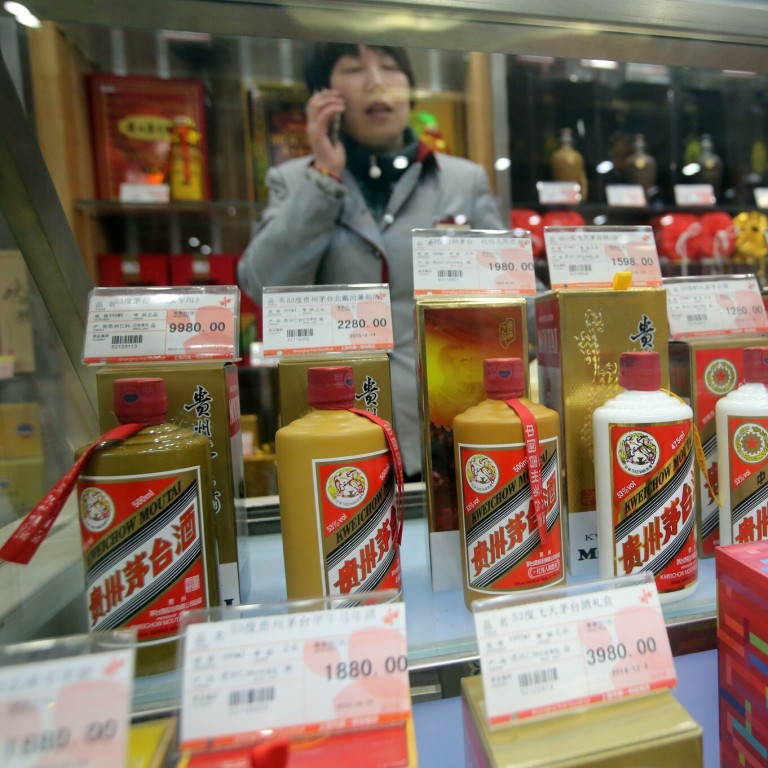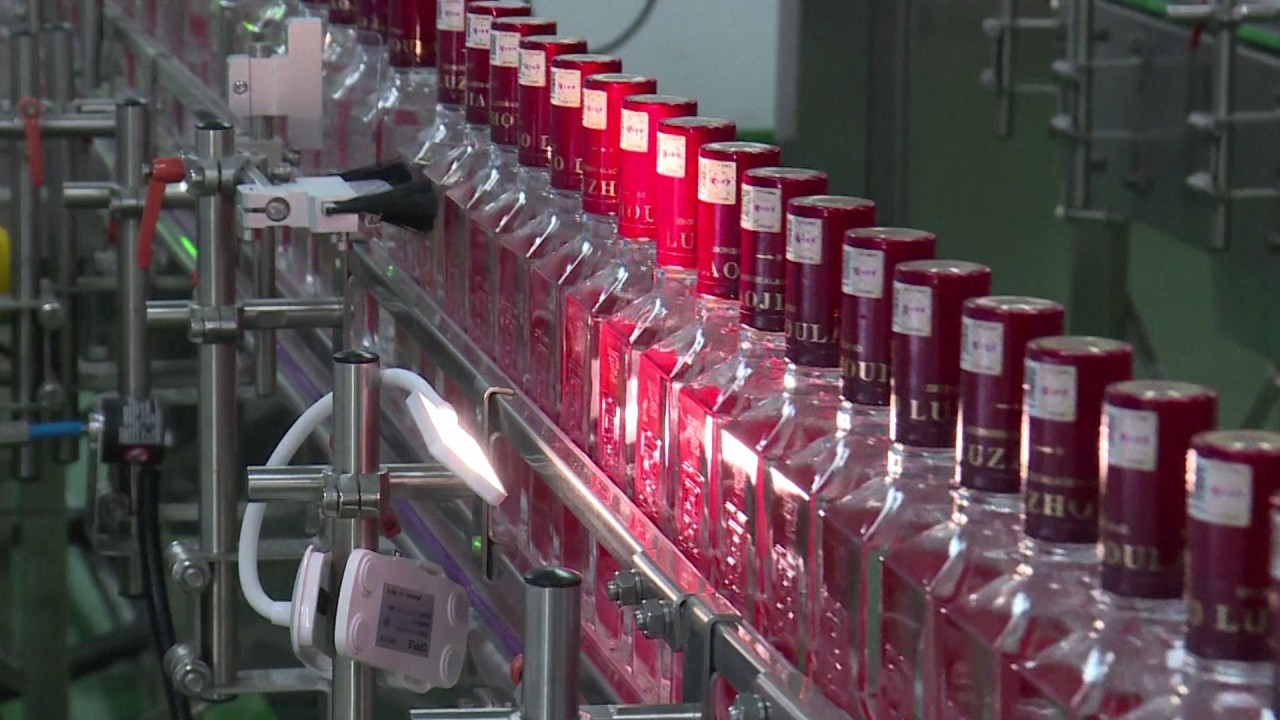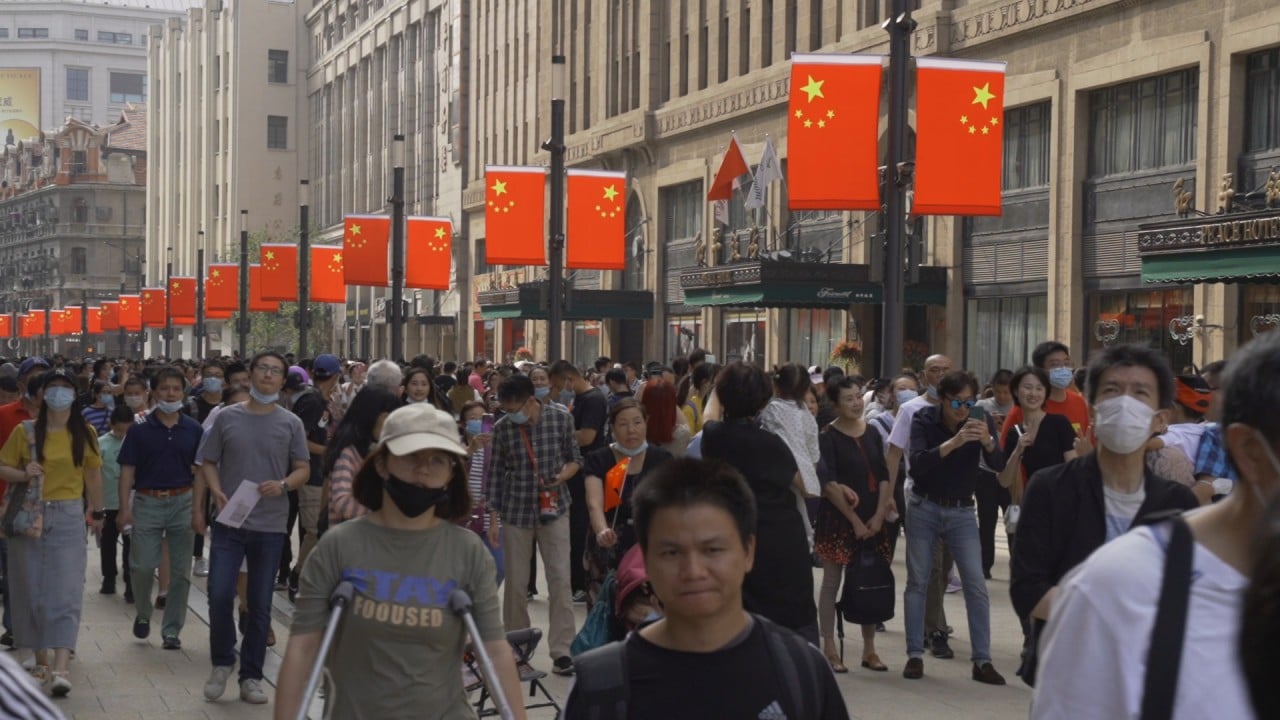
China’s market-beating liquor stocks fancied by money managers keep others wary of valuation, investing blunders
- Kweichow Moutai and Wuliangye Yibin are among the most-researched and preferred stocks, more valuable than the next five biggest European peers combined
- Their fiery rallies are keeping money managers in jubilant mood, others wary of potential sell-off as valuation soars
The dizzying run has boosted their joint capitalisation to 3.3 trillion yuan (US$503.7 billion), or 1.5 times their next four biggest overseas rivals — Anheuser-Busch InBev, Diageo, Pernod Ricard and Constellation Brands — combined. Kweichow Moutai trades at about 48 times this year’s earnings, a level not seen since 2008. Its consumer-staple peers within the CSI 300 Index members are priced at 31 times, or 50 per cent higher than their 10-year average, according to Bloomberg data.
“Industry sentiment will remain rosy for at least another year, with earnings growth being certain and on good track,” said An Yaze, an analyst at CSC Financial in Beijing. “The trend will not be altered so that consumption upgrades will benefit the leading players.”
Shares of Kweichow Moutai, the world’s most valuable distiller, rose 2.5 per cent to 1,793.11 yuan in Shanghai on Friday, just shy of the record 1,801.98 set on September 1. Wuliangye added 2.1 per cent to 267.19 yuan in Shenzhen, close to an all-time high of 273 yuan on November 16.
Much of this year’s growth has come on the back of China’s sustained rebound from the historic slump in the first quarter. The economy has thrived on domestic consumption power while factories were idled. As a result, profits for liquor distillers grew 9.7 per cent in the first nine months, while the rest of mainland-traded companies recorded a 6.6 per cent drop, according to Haitong Securities and Wanhe Securities.

01:56
Baijiu, China's national spirit, seeking markets abroad where taste still fails to intoxicate
The uninterrupted bull run, however, may have become a little frothy. Investors including Dutch asset management firm Robeco are wary that the lofty valuation will chip away their appeal, putting the stocks at risk of a sell-off.
“The valuation is a big problem and that is particularly bad for second or third-tier liquor brands,” said Lu Jie, Shanghai-based head of China investments at Robeco, which manages about US$192 billion of assets globally. “If the pandemic abates and liquidity is tightened, the sector will face enormous pressure in valuation.”
Alibaba says Singles’ Day record sales show resilience in Chinese economy
Besides, China’s post-pandemic policy support likely peaked in October, according to BCA Research, a unit of Euromonitor group. The odds are rising that the Chinese leadership will accelerate structural reforms and de-risking campaign which began in 2017 but was delayed by the US-China trade war and the viral outbreak, it said.
The fallout may be short-term headwinds to economic recovery and the stock market’s performance, analysts Xu Qingyun and Jing Sima wrote in a December 2 report. “A peak in the country’s business cycle will probably be reached by mid-2021,” they said.

02:16
With Covid-19 infections under control, tourism in Shanghai booms during China’s ‘golden week’
China’s liquor stocks have been a crowded trade over the past few years because of their popularity. Kweichow Moutai is tracked by 53 stock analysts, while Wuliangye Yibin has 48 followers, according to data compiled by China Renaissance Securities.
That ranked them among the top three most-researched mainland Chinese stocks, and the top five growth stocks most-preferred by local institutional investors, the brokerage said in a report published in October.
It is premature to dial back optimism on liquor producers, as the valuation is not likely to contract significantly, according to Central China Securities. China’s central bank will likely refrain from unwinding its easy monetary policy so soon next year, given the subdued inflation outlook.
“We don’t see a factor that will push the consumer sector into a persistent correction,” said Liu Ran, an analyst at the brokerage.
Wholesale prices of Kweichow Moutai and Wuliangye brands are steadily rising and the inventories remain at healthy levels, according to channel checks by Guotai Junan Securities. Investors should stick with top-tier producers and avoid smaller players in the industry, according to China International Capital Corp (CICC).
Major distillers are also capable of doubling their profits in the following four or five years, said Yu Chi, a Beijing-based analyst CICC. At 40 times estimated 2021 earnings, their stock prices are not anywhere near bubble territory, he added.
“The core logic of the bull run on liquor stocks over the past five years has remained unchanged,” said Yu. “High-end liquors will continue to gain market shares and deliver sustainable and secure growth.”

